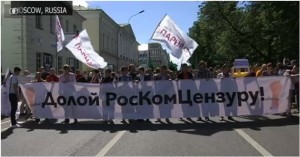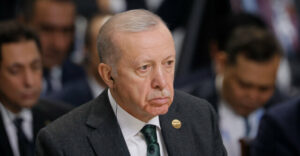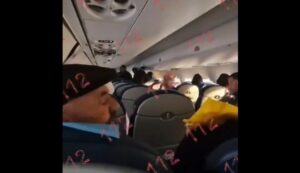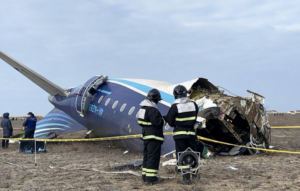More than 2,000 people have marched through the streets of Moscow to demand an end to efforts by Russian authorities to control and monitor what is posted online.
Protesters yelled slogans including, “Truth is stronger than censorship” and, “Free country, free internet”, and a handful of people were detained.
For years, Russian authorities largely ignored the internet, preferring to focus on controlling traditional media, television in particular.
But it remains one of the few channels of communication available to those critical of the Kremlin.
Opposition politician and self-declared presidential candidate Alexei Navalny has more than 1.3 million followers on his YouTube channel.
With presidential elections due in just eight months, the Kremlin is playing catch-up, introducing a flurry of new laws designed to bring the online space under its control.
Draft legislation currently being pushed through parliament aims to force VPNs to block sites on a black list drawn up by the federal media watchdog, Roskomnadzor.
The new bill would outlaw VPN providers refusing to do so, and attempt to block them.
Another law, now being put in place, demands internet providers keep a six-month record of all sites visited by users, and that all metadata be saved for three years.
It also requires messenger services to provide their encryption keys to allow the authorities access to private communications.
source: abc.net.au
Ask me anything
Explore related questions





